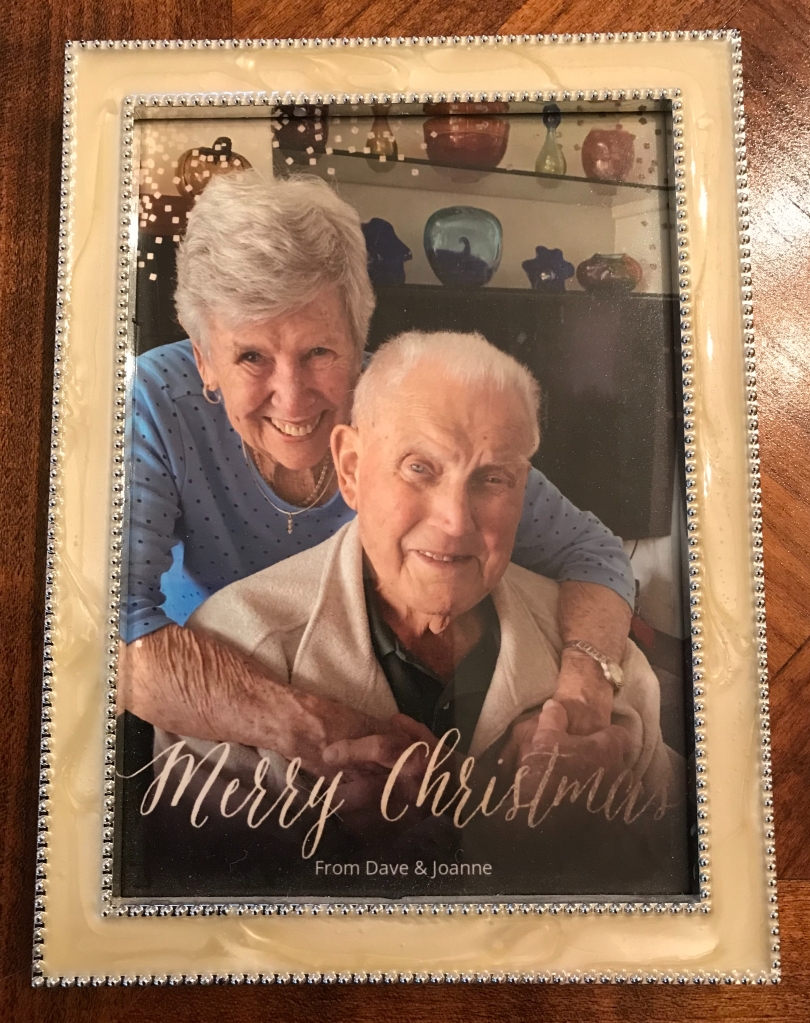This tribute to the life of David P. Coon was delivered live by the author on February 4, 2024 in St. Alban’s Chapel at ‘Iolani School in Honolulu.
I’m standing in his spot. I remember sitting in any number of locations in those pews starting at about age 12. When he stood here, my eyes were transfixed. This was his spot. The chaplains stood here. Many of our teachers stood here. Years later I even stood here a time or two. We were borrowing the space ever so briefly. He belonged here. This magnificent structure was all our home, but this spot was his.
Much can be said about presence. When that presence transcends the ordinary, everyone knows it. Whether speaking as the Revered David P. Coon, Headmaster Coon, Dr. Coon, Father Coon, even the impossible to say “Dave,” this beloved gentleman embodied presence. That baritone voice, that solid handshake, that unforgettable laugh – presence doesn’t even begin to describe him.
This is where I first learned about original sin. I didn’t even know what it was. He stood here and taught us that we had fallen and didn’t even know it. Redemption would be our lifelong mission. What in the world did he mean by that?
That’s heavy stuff I’m still digesting in my 60s. Imagine being 12 and trying to make sense of the homily. It made sense because he always made sense. It was like listening to an opera star. Could be Italian. Could be French. I just wanted to listen.
I loved coming to chapel. Really. For 5 of the 6 years I was a student here, I was the only Jewish kid on the roster. When we became co-ed my senior year, I was no longer solo in that regard, diversity was blossoming at every level. It had been every year prior. The women who joined this community as students and graduates did so in the culmination of this headmaster’s vision. He saw it as necessary before anyone else and he made equality reality.
This was a place of learning and truth. This was a place of inclusion This was a place of love. I’ve never felt more at home than I did on this campus.
Dave Coon insisted on that. Dave Coon made it so.
I’ve been awarded the honor of speaking today on behalf of the ‘Iolani alumni in tribute to a man we respected, admired, emulated, and loved. It’s an impossible task and I have been asked to keep it brief. If you know me, you know that’s even more of an impossible task.
Brevity is required so I will do my best to honor it. Representing the breadth and depth of alumni that walk up here each Spring and get a diploma? I’m just going to admit failure right now and try instead to tell you what I think Father Coon did better than anyone else in all my years and travels.
Ready?
He planted seeds.
Not ordinary seeds. Seeds of excellence. Seeds of change. Seeds of diversity. Seeds of integrity. Seeds of the impossible. Fragile, vital seeds that sprout in young minds and grow stronger and steadier for a lifetime.
I’m a grandparent now. It’s a bit eerie. It’s caused me to think about the arc of childhood in ways I never imagined. Those baby seeds take shape in enormously deep roots, inescapably revealing insights in the most unpredictable contexts. We all start out in the same place. Completely vulnerable. Non-conversant. Utterly dependent. Absent memory. Even Dave started that way. Hard to imagine.
What happens next, I’ve come to think of as The Miracle of 18 Years. This was a revelation for me, a daunting moment of transformation.
Years ago, I was interviewing an impressive high school senior for college. I do this each year as a volunteer. This particular young adult was blowing me away with knowledge, analysis, ambition, humility, graciousness, kindness – she even made me laugh.
So I’m sitting there marveling at this 18-year-old laying out a portfolio of observations eons beyond her years and a game plan to make the fast track to a Nobel prize, and I’m wondering, how did that happen? How did that barely cognizant infant compound knowledge over a period of just 18 years and come to utilize a vocabulary that sent me paging through the Oxford English Dictionary?
It seems impossible to believe that could happen. I’ve been trying to put that together for the better part of a decade, how that arc works, the impossibility of diapers to Dostoevsky in an 18-year sprint. 18 years, it’s nothing, it flies by, and suddenly you’re an adult human being. Who figured that out?
In that moment of clarity, all I saw was Father Coon. This was his gig. This was his normalcy. He never thought twice about it.
Each year another group of us would arrive, each of us a small lump of pizza dough. We could be 6-year-old pizza dough, 12-year-old pizza dough, it didn’t matter to Dave. This man knew how to turn pizza dough into pizza.
And here was the secret trick. He knew each of us was unique. No two of us would be the same. I think he loved that most of all. It wasn’t his job to mold us into what he wanted us to be. He wanted to mold us into the best version of ourselves that we could be. What mattered to Dave was that we would become what we wanted to be.
Were there a few values we should share? You bet. Did we have to know when a sentence ended where to place the period? Oh, yes. Did 2 + 2 equal five? No, it did not. The rest? Mostly up to us.
That’s where he planted the seeds. In our hearts. In our minds. In our souls. We were not finished goods. Those seeds needed to grow inside us for the rest of our lives. That’s what he understood better than anyone I’ve met. That was what he did better than anyone I’ve met. He helped us become who we needed to become, and he taught us to care for each other more than ourselves.
Parents do it. Of course, they do. Once, twice, in the extreme maybe six or eight times. He might pray for you if that were the case. He did it hundreds of times each year for decades. You want to talk about leverage and scale? You want to talk about consistency? Imagine creating that miracle of human development over and over again – never losing energy, never losing interest, never losing faith. Imagine the odds of that kind of repeat success.
There’s a word that comes to mind: indefatigable.
You know what else? He did it quickly. We didn’t see it coming. We didn’t even know it was happening. He knew The Miracle of 18 Years was a ticking clock. When we came up here in the Spring to shake his hand, that clock had mostly run its course. Another clock was starting. His day job was done, but its impact was only beginning.
Dave Coon led this astonishing institution from its storied past to its celebrated future. On this campus where we gather today, he made that miracle purely routine.
I had the good fortune at one point in my career to work at Disney where we talked a lot about magic. That dialogue dates back to Walt.
If you’re into science fiction, you know that Arthur C. Clarke wrote, “Any sufficiently advanced technology is indistinguishable from magic.”
Neither Walt Disney nor Arthur C. Clarke had anything on Dave Coon. Dave Coon worked his magic perfecting and normalizing The Miracle of 18 Years. They might have failed his class. He probably would have asked for more specificity.
Okay, we’re in the home stretch, I promised brevity, and this is not the kind of place to tell lies. Here is the most important part.
It didn’t stop when he left. The seeds were planted all around this place. There were teacher seeds who shared the magic with other teacher seeds. There were leadership seeds that in this room right now are evangelizing inspired leadership. There were math seeds and sports seeds and music seeds and poetry seeds. They all just keep growing.
Father Coon stepped off this lectern when he thought it was time to do other things, to nurture a church on the Big Island, to spend time with his family, to counsel another generation of educators. The seeds were deeply embedded. Their magic kept blossoming.
The Miracle of 18 Years continued. It continues to this day, while he watches and listens to us from a different place of presence.
We embark as youngsters naively on The Miracle of 18 Years with hopes of accomplishment, hungry to achieve goals, eager to find fulfillment in the relationships we traverse. When there are more years behind us than there are ahead of us, we may start to think instead about legacy.
Legacy is not something we can direct; it is left for others to decide. The legacy of Dave Coon is the perpetuation of his presence in this beautiful place where he lived and worked and touched each of our lives.
It is a legacy of love, which is the one lesson he taught repeatedly, sometimes in the classroom, sometimes on the lawn, sometimes standing in this place. He is still here and will be forever. This is still his place. I am a seed of his legacy as are we all. The love of this alumni for Father Coon is boundless. He taught us to love each other, to welcome the stranger, to honor every life we would be privileged to encounter.
How can any presence be more profound than that?
_______________
Photo: ‘Iolani School




